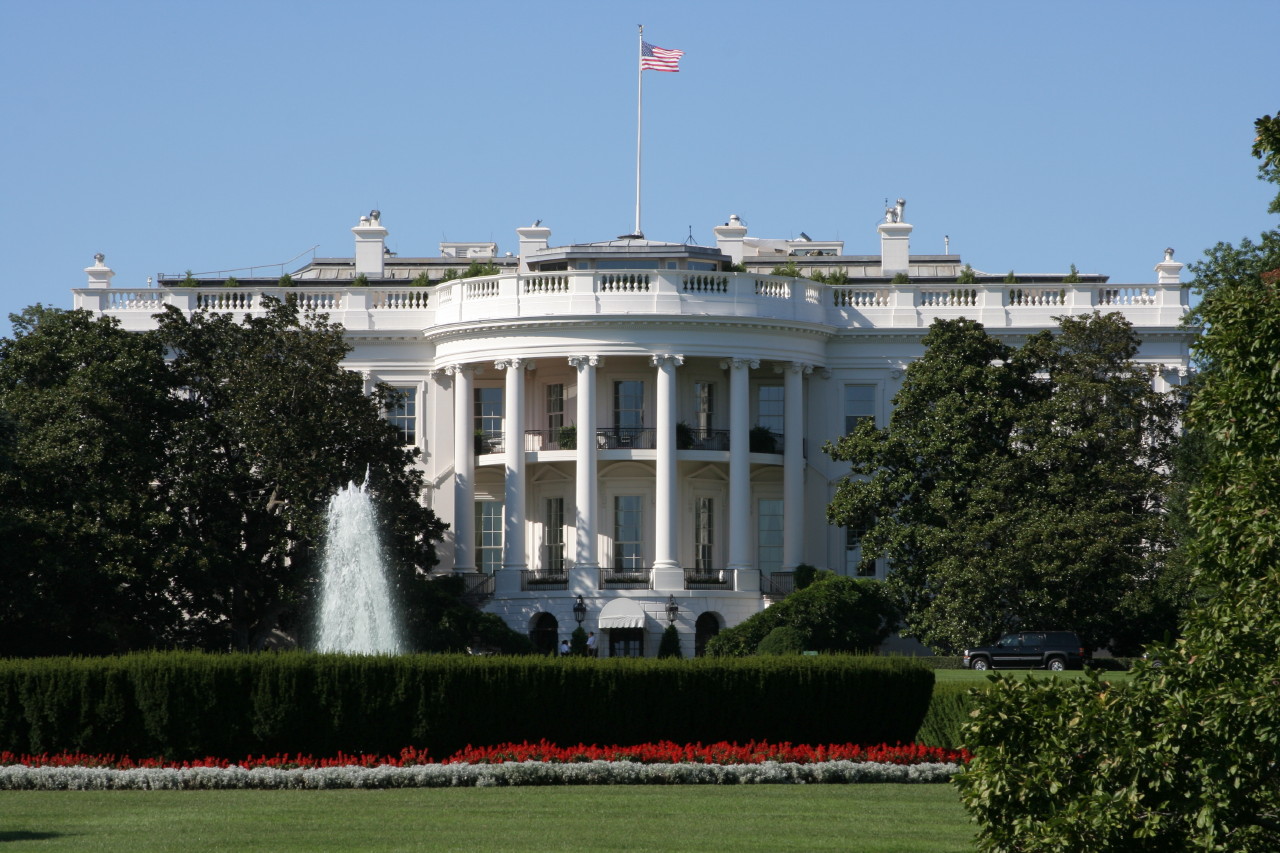Three Things You Hear When You’re Burdened to Pray for the Nation

Called to Intercede for Your Nation
August 17, 2017
What does the Bible say about pollution and the earth?
September 19, 2017If you’re passionate about the direction of the nation, and if you hunger and thirst for righteousness in your land, perhaps at some point you’ve been chided for your zeal. In my last post, I shared my own testimony of not knowing what to do with the burden I carried for my country, but how the Lord kept showing me He would not have given me such a heart to care if He did not intend to answer the desires of my heart, specifically as they pertained to the nation.
Here are three things I’ve heard Christians say to fellow believers or even to themselves over the years, usually as a remonstrance not to get too excited about current events. I do not suggest we discount these as irrelevant; however, we know that even the devil uses scripture to his advantage, and so we must test whether these and other words apply to the burden we’re carrying, or if they’re being used to quench our God-given fire. In other words, is what is on our heart a distraction or even idolatry, or is it a righteous passion that God wants us to turn back into godly intercession?
1) Jesus said, “My kingdom is not of this world.” This one is a perennial favorite among believers to quote at other believers. Let’s look at the context of this verse where it is found in scripture. Pilate is questioning Jesus about His title “the King of the Jews.” Jesus responds to Pilate by asking him whether this is Pilate’s own revelation (that Jesus is a king) or did others tell him that Jesus was. Pilate retorts that he is not a Jew, and that Jesus’ own people are the ones bringing the charge.
When Jesus responds again to Pilate’s questioning, He qualifies His earlier statement by saying, “My kingdom is not of this world. If My kingdom were of this world, then My servants would be fighting so that I would not be handed over to the Jews; but as it is, My kingdom is not of this realm.” Therefore Pilate said to Him, “So You are a king?” Jesus answered, “You say correctly that I am a king. For this I have been born, and for this I have come into the world, to testify to the truth. Everyone who is of the truth hears My voice” (emphasis added).
Jesus was telling Pilate that His kingdom was supernatural. It was not of the earthly realm. If it were like Pilate’s kingdom, the Roman Empire, Jesus said that His disciples would be fighting according to the natural world, with swords and spears and clubs. That is not Christ’s way, nor should it be ours.
Jesus did in fact say that we were to pray this way, that His kingdom would come to earth and His will would be done as it is in Heaven (Matthew 6:10). That’s a revolutionary prayer! What is the kingdom of heaven? Romans14:17 says that the kingdom of heaven is righteousness, peace, and joy in the Holy Ghost. People who say My kingdom is not of this world seem to imply we shouldn’t concern ourselves much about earthly kingdoms. But Jesus was very much interested that we bring His kingdom into our earthly ones with our prayers, speaking the truth, and our Holy Spirit-inspired good deeds. The fruit of this is things being right and at peace and in proper order. God’s will is not chaos, confusion, and violence.
(There is a religion that invokes the name of Christ and uses force, and it is called Liberation Theology. Emphasizing social justice, it is actually antichrist in nature, as it employs the teachings of Christ but ultimately goes against His Spirit).
The United States is not a theocracy. Christ’s kingdom is neither automatic nor brought about by the means with which worldly governments use. Our Constitution is founded on Judeo-Christian principles and recognizes that our liberties come from God, not the State. No other nation has been so prosperous, blessed, and enjoyed such peace within her borders. Civil government was intended by our founding fathers to be very limited and relies much on the individual for self-government. The power swell by the federal government in the last several decades is unconstitutional (lawless) and has forced many believers to confront their political beliefs because of how overreaching it has become (everything today is political, even the weather!).
Anyone who relies on force to bring the gospel is clearly off track. However, leveling “My kingdom is not of this world” at people invokes the escapist mentality some Christians have about heaven, and might imply that only ungodly people should influence earthly government, and/or that we should be passive and not too zealous about righteous policy here on earth.
I often try to imagine this same verse applied to other endeavors. I can’t imagine, for example, if every time I looked for sponsors when I did a 5K for orphans, Christians shook their heads and said, “Jesus said, ‘My kingdom is not of this world’.” Why worry about feeding and clothing orphans? Then why worry about the policies that allow resources and caregivers to reach them?
Or I imagine rubberstamping that expression on my involvement with a pregnancy center that provides abortion-minded women alternatives. “Jesus said, ‘My kingdom is not of this world’,” Christians would say with a gentle reprove. Righteous pro-life policy brought about by prayer, voting franchise, and speaking up for the unborn is more far-reaching than the hours I’ve put in physically contributing to the pregnancy services center I help, and while both are important, no Christian has ever quoted “My kingdom is not of this world” when I’ve collected formula and diapers for a drive. But they have said it when I’ve suggested fervent prayer for a righteous governor and for the Supreme Court.
2) “It is better to trust in God than to trust in princes.” Psalm 118:9 is a beautiful reminder that no human authority or power merits our reliance and our dependence like Jehovah-sabaoth, the Lord of hosts or Lord of armies. No matter who is in office or what the policy, we look to our Heavenly Father to be our shield and our refuge in scary times.
Daniel 2:21 says that God appoints and tears down kingdoms. A friend of mine who emigrated from a former Communist country pointed out that in a representative republic, of which the United States is, we should be praying for the people along with the government leaders, because a measure of authority has been given us with our right to vote and to free speech.
Righteous policy is a tremendous blessing. One specific area in which our family personally felt the effects is in health insurance. My husband is self-employed, and from 2014 to 2016 our premiums rose 168%. The monthly amount was far more than we’d paid for a mortgage.
But our trust was in God, not in princes, and we knew He’d take care of us. My husband and I put before Him whether we should even purchase insurance, or just trust Him to keep us perfectly healthy. He directed our steps and has cared for us abundantly in the midst of messy policy; nevertheless, it would be a tremendous blessing for us and for other Americans to have affordable and reliable insurance options; even more importantly, they should have the freedom of options. In fact, trusting in government over God is exactly what many people are doing who are pushing single-payer health care in the name of compassion, and it’s clearly a demonic agenda.
It is better to trust in God than to trust in princes. But good “princes” are a blessing from God, so let’s vote them into office at every opportunity and pray for them for wisdom!
#3 Jesus didn’t get involved with politics. In recent years, Jesus has gotten pulled into a number of statements to make a point, and these have been asserted by atheists as much as they have self-described Christians. “Jesus never talked about homosexuality.” “Jesus was a refugee.” “Jesus didn’t get involved with politics.” These have all been used to make moral equivalents to things that are not morally equivalent, or to dismiss topics that Jesus must not have thought important. While the implied arguments are flimsy and dissolve when probed, very sadly, many Christians don’t employ their critical thinking skills and so they fall for this one.
First of all, Jesus absolutely was involved politically; whether He desired to be is another matter. Have you ever stopped to think that Jesus spoke of Himself in political terms, describing Himself as a king with His own kingdom? He turned the political establishment of His day on its head, which was for the Jews their religious system. His Father’s business was preaching the gospel of the kingdom, and this included healing the sick, casting out demons, raising the dead, and the forgiveness of sins.
Jesus’s highest message was to fix our eyes on what is unseen, and not that which is temporal. But He did not ignore the realities of the natural world. Christ lived under Caesar, not a representative Republic like we have in the United States, and so whether He would head to the polls if given the opportunity is something for debate. He verbally claimed tax-exempt status when it was time to pay the temple tax, but He paid anyway so as not to cause offense (Matthew 17:26). He said to render to Caesar what was Caesar’s, and to God what was God’s (Mark 12:17), thereby affirming obedience to civil authorities and thwarting insurrection against government by aggrieved citizens.
Paul, likewise, showed honor to authority and at the same time employed his civil rights as a citizen of Rome in an appeal not to be scourged (Acts 22:25). Paul also maintained that governments are a tool for the righteousness of God (Romans 13:5-6) and that their primary mandate is to wield the sword with righteousness.
We live in a culture in which everything is political: things as basic as gender and weather and the systematic killing of the unborn have become political weapons by the enemy of our souls. The only way not to be political in our world is to shut up. This is exactly what the devil wants us to do, and he’s working overtime through his agents on earth in education and corporate America and elsewhere to ban free speech. The truth is a sword to his kingdom of darkness.
When you see first-graders in the national news because they talked to classmates about Jesus and the devil and the teacher got upset, those first-grader have gotten involved politically. They didn’t intend to, were only speaking out of the fullness of their hearts, but the result is the same. If we as adults are not willing to risk speaking up, talking to our legislators, and voting, we risk losing all these wonderful privileges that so many others around the globe long to have.
Walk In the Spirit
In conclusion, I want to say that anything, certainly politics, can be a distraction and even a form of idolatry. For me, I find it helpful to put two things into practice:
First, in my daily time with God, I don’t just jump into intercession for the government. Some mornings I devote simply to worship and I don’t petition God at all. I try every morning to follow the Spirit’s leading as to how He’d have me pray.
Secondly, being passionate for the kingdom of heaven to come into policy and my intercession for the nation doesn’t negate other aspects of Christ’s commissioning. I am still commanded to heal the sick, raise the dead, cast out demons, and preach the gospel of the kingdom. I use my finances and my gifts to build up the Body of Christ. None of Christ’s commands excludes another, just like the gifts of the Spirit don’t cancel out the need for the fruit of the Spirit. They all go together. I have discovered that personal, one-on-one ministry to people, especially in the area of deliverance (which often requires a great deal of listening and reliance on the Spirit) has taught me to love people better than anything else.
But do we realize how much good policy and righteous leaders affect not only our lives and our neighbors, but also the entire international community? I wager most Christians don’t stop to consider it. The Bible has a lot to say about nations. Did you know that when the Soviet Union fell, revival broke out? When I picked up a 1955 copy of LIFE magazine featuring post-war Germany, the secular magazine featured how a return to faith following the fall of Hitler and the Third Reich. Good government allows for freedom to hear the gospel and to worship. Conversely, corrupt government is responsible for systemic poverty and a host of other evils.
Recently when I was praying, I got a glimpse in the Spirit of all these little children in a middle eastern nation that were waiting on the other side of good policy here in the States. Tens of thousands, a sea of little faces, were in waiting, and their lives would be impacted by our policy here!
The Great Danger
Did believers in other parallel moments in history hear others say, “Jesus said, ‘My kingdom is not of this world’” or “Jesus didn’t get involved in politics,” I wonder? I tried to picture it during the Civil War and the abolitionist movement, and during the rise of National Socialism under Adolf Hitler. There were pastors and priests who spent time in concentration camps because they didn’t think they were called to stay out of politics. Moreover, how does one stay away from politics in a world in which things as basic and universal as gender and weather are being politicized by the enemy?
Let’s face it: we are at a tipping point in our nation’s history, and we’re being tested as to whether any nation so conceived and so dedicated can yet endure. Men were allowed to be men and take a stand in 1860. If not godly ones, then who would do it? Are they still allowed to speak out with the same passion today? Or is the cause not worth it? These are the questions we must ask ourselves and put before the Heavenly Father.
In conclusion, I want to acknowledge that political activism in itself can absolutely be a snare. Sheldon Vanauken, friend of C. S. Lewis and author of A Severe Mercy, wrote this
“I was one of those caught up in the mood and action of the 1960s,” he wrote. Christ, I thought, would surely have me oppose what appeared an unjust war. But the Movement, whatever its ideals, did a good deal of hating. And Christ, gradually, was pushed to the rear: Movement goals, not God, became first, in fact — not only for me but for other Christians involved, including priests. I now think that making God secondary (which in the end is to make Him nothing) is, quite simply, the mortal danger in social action, especially in view of the marked intimations of virtue — even arrogant virtue — that often perilously accompany it.
What have you heard people say in regards to your involvement in prayer and policy? Did you find that the reproof was justified?
*art image used with permission of www.jtbarts.com





